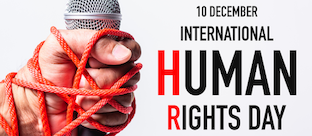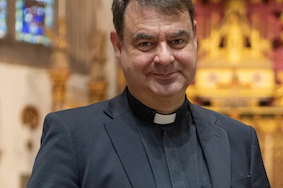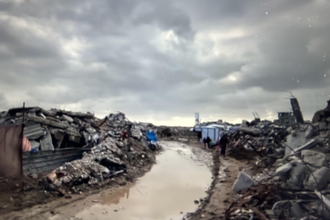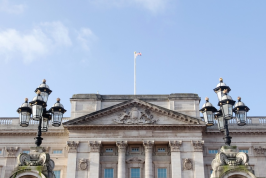Do we act fervently on the doctrines of Catholic Social Teaching?

Source: Jesuit Institute South Africa
As the world is engulfed in more and more deadly conflicts, Pope Francis reminded world leaders this past week that our "human rights to life and peace are essential conditions for the exercise of all other rights."
The United Nations (UN) marked Human Rights Day on Tuesday, 10 December, the anniversary of the 1948 Universal Declaration of Human Rights. The UN established this day to raise awareness of all human rights and liberties irrespective of gender, nationality, ethnicity, race, or religion.
Pope Francis, in a tweet on X, pleaded for governments "to listen to the cry for peace of the millions of people deprived of their most basic rights due to war," which, he said, "is the mother of all poverty."
Archbishop Nikitas of Thyateira and Great Britain, the President of the Conference of European Churches, said, "Brutal offences, systemic injustices, and the erosion of the rule of law and democracy not only threaten individuals but also undermine the foundation of societies built on justice, solidarity, and peace". He went on to say that "Churches, as part of their mission to serve and protect the vulnerable, cannot remain silent in the face of such challenges."
Citing the ongoing wars in Ukraine and the Holy Land, along with the broader crisis in the Middle East, the situation in North Karabakh, and many other crises, he said the Churches "observe with distress how human rights and human dignity of all people are coming under pressure."
Human Rights Day is an opportunity to recognise the work already done and reminds us of what remains to be done to protect the rights that every person is entitled to. It is a call to action to ensure these rights are respected worldwide.
"Violations of freedom of religion and belief, rising inequalities, discrimination, and violations of the rights of refugees, migrants, asylum seekers, displaced persons… remind us of the fragility of these achievements," said Archbishop Nikitas.
South Africa's Constitution is celebrated all over the world despite local voices disparaging it and calling for its change. We share many of the principles and values of the UN Declaration, including the universal, indivisible nature of human rights, which are at the very foundation of democracy.
Yet, if one looks at our society, one will soon notice how much of the UN Declaration (and our own Constitution) still needs to be realised. Many people in our country do not have access to the basics - water, sanitation and clean power. Thousands of children are forced (daily) to use pit latrines at school. Millions are denied basic medical services. Getting essential public services, like identity documents, which give access to banking, school, etc., is often a long and drawn-out process. Migrants and refugees are treated appallingly.
Having words on a page is good, but words are only complete and meaningful if acted upon. The custodians of these rights are often the biggest culprits when they ignore them.
The Catholic Church has a rich treasure of teaching: Catholic Social Teaching (CST), which outlines the Church's doctrine that focuses on human dignity and the common good in society. How are we, as the people of God, putting our doctrines into practice and working for justice and peace in South Africa today?
Follow The Jesuit Institute on Twitter @JesuitInstitute


















